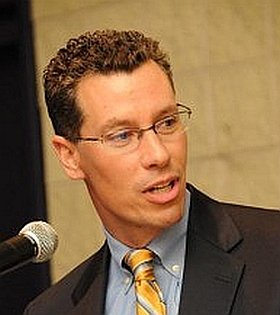
Mr Gregory J Herrema, president, biosciences, Thermo Fisher Scientific
Global biopharmaceutical solution provider Thermo Fisher Scientific has recently expanded its global cell culture and bioprocessing capabilities by opening a new manufacturing plant in Singapore. The facility is the first-ever cell culture dry powder media (DPM) production site in Singapore and is designed to address the increased global requirements from biopharmaceutical companies to mitigate critical raw material supply risks.
In an interview with BioSpectrum Asia, Mr Gregory J Herrema, president, biosciences, Thermo Fisher Scientific, talks about the potential of Asia as a biologics manufacturing site and its position to attract large multinational companies.
How is Asia positioned as a hub for biologics manufacturing? Which countries do you think have potential for biologics manufacturing and why?
According to a recent report by BCC Research, the DPM market in Asia has been estimated to grow to $220 million by 2016, representing a 20 percent compound annual growth rate (CAGR), the highest in the world for media products. In addition, Singapore is becoming a central location for biopharmaceutical companies.
According to the Singapore Economic Development Board (EDB), the biopharmaceutical sector contributed about $17.79 billion (S$22.8 billion) in output in 2011 and more than 6,000 jobs. In particular, the eight biologics manufacturing facilities located in Singapore have invested approximately $1.87 billion (S$2.4 billion) and employ more than 1,700 people.
We also see the expansion of biologics manufacturing throughout the Asia Pacific (APAC) region. Immunization initiatives in China and India are driving rapid expansion of vaccine manufacturing processes in those countries. Additionally, many countries in the APAC region are investing in the development and production of biosimilar versions of biotherapeutics coming off patent.
Recently, South Korean company, Celltrion, announced receiving positive opinion from the European Medicine's Agency (EMA) for the sale of an infliximab biosimilar in the European Union. With many other biosimilars being developed in Asia, it is forecast that biomanufacturing will continue to scale up throughout the region.
Please elaborate on the major activities of Thermo Fisher in Asia?
Thermo Fisher is one of the largest life sciences companies in the Asia Pacific (APAC) region, which also represents our fastest-growing market. Currently APAC contributes to approximately 17 percent of our revenues (more than US$2 billion annually) and was a major contributor to the company's organic growth last year. Last year marked Thermo Fisher's 30th year in this region and we now have more than 5,000 employees working throughout this region.
Over the last several months, we have crossed many major milestones throughout the Asia Pacific region. Thermo Fisher expanded its global cell culture and bioprocessing capabilities by opening a new manufacturing plant in Singapore to produce dry powder media (DPM). The facility is the first cell culture DPM production site in Singapore and is designed to address the increased global requirements from biopharmaceutical companies to mitigate critical raw material supply risks.
In June 2013, Thermo Fisher opened a new China Innovation Center to support product engineering, development and training in order to meet the specific needs of customers in China and Asia Pacific. Moreover, in 2012, Thermo Fisher opened a new manufacturing facility in Suzhou, primarily dedicated to serving the life sciences and pharmaceutical industries.
In India, Thermo Fisher recently opened a new toll manufacturing facility in 2012 for its global chemicals business that includes a ISO 9001:2008 certified quality analysis (QA) laboratory as well as hazardous chemical storage for bulk solvents.
What are the current trends in biopharmaceutical industry and how is Thermo Fisher positioned to address the changes?
The pharmaceutical industry continues to move rapidly towards large molecule or biologics drug development. As a result, our biopharma customers today face a changing and global landscape with a heightened focus on supply assurance, consistent quality and redundant manufacturing.
Bringing biologic medicines from discovery to development and production, demands exceptional technologies and expertise. Thermo Fisher offers a deep understanding of the complex relationship between single-use film, cell culture media, single-use bioreactors and the biological systems used to produce vaccines and biologics.
Thermo Fisher has served the biopharma industry for decades and is well aligned to keep pace as this market evolves. Our scale and depth of capabilities are unmatched as a global bioprocessing leader to help our customers efficiently progress from drug discovery to large-scale commercial production.
What are the major markets for Thermo Fisher in Asia and what is the demand in these countries?
Since Thermo Fisher first entered the Asia Pacific market more than 30 years ago, we have seen a steady expansion in key markets throughout the region. China and India remain our largest markets. However, we see further expansion in Korea, Singapore, Japan and others throughout the region.
Our pharmaceutical and biopharmaceutical customers throughout the Asia Pacific region are competing globally. To meet their own compliance standards, they require reliable alliances, partners who can assure global quality products. They are looking at reliable vendors, who can support them with consistent quality during their scale-up, from the R&D lab, to pilot production, to bulk manufacturing. We continue to see increased demand particularly for dry powder media (DPM) among our customers globally, but it is particularly strong throughout the Asia Pacific region.




